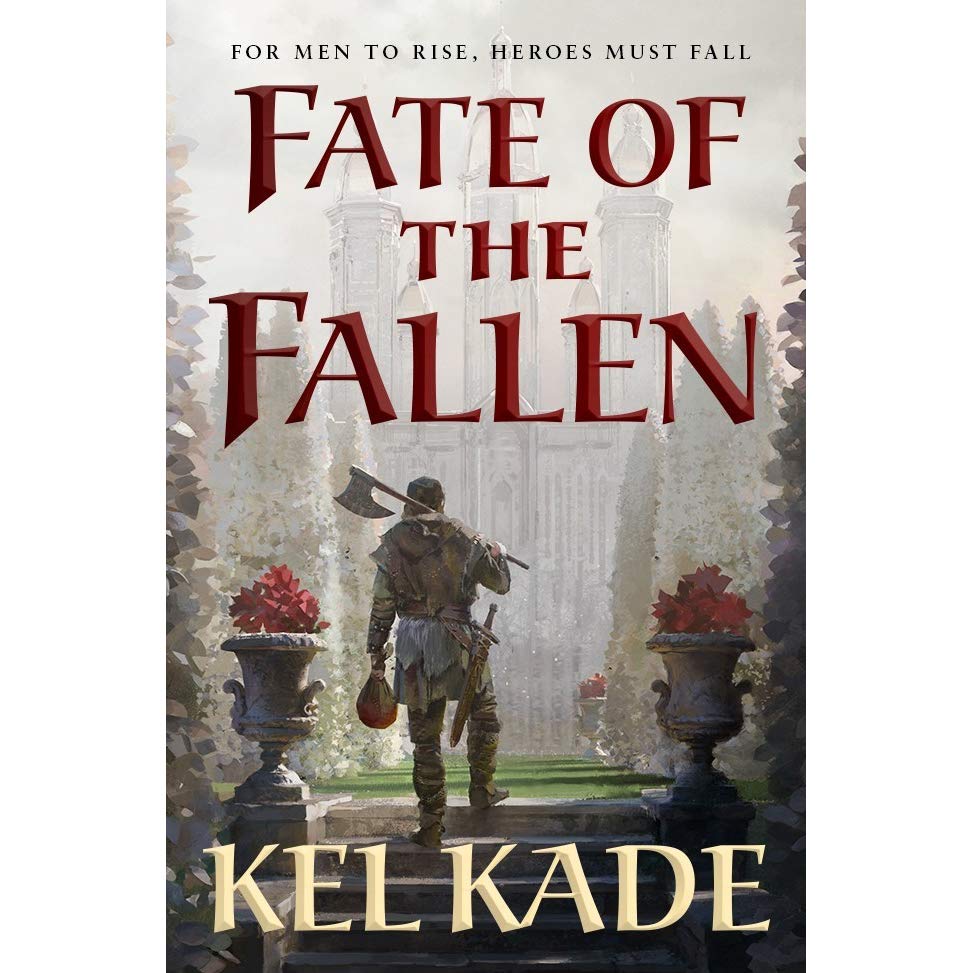When it comes to fantasy, it has inevitable hangers-on, specific ideas, certain character archetypes that spring to mind. Our imagination fills up with magic, swords, dragons, and, of course, heroes. The monomyth that won’t quit that plucks the one person from humble beginnings, calls them the chosen one, and sends them on their way. The Hero’s Journey, for some that tried and true template for telling the tale of a hero going on an adventure. For others, it has become a relic of the past.
For Kel Kade’s Fate of the Fallen, it is a cunning way to set our expectations of what will happen and take the other route. There is a prophecy that speaks of the world coming to an end. Every path the prophecy takes leads to failure. All but one. One in which Mathias leaves his small village and saves the world from the forces that would destroy it. By his side is Aaslo, a forester, caretakers of the trees, who is reluctant to leave his forest to help Mathias on his journey. However, hope seems in short supply, and some have decided they’d rather give up than fight what they believe to be the inevitable outcome.

At this point, it’s difficult to review the book without revealing a major spoiler. If you’re at all curious about Fate of the Fallen know that it is an exciting world that blends well familiarity and originality in the fantasy genre with a cast of characters to be loved and a plot that takes epic turns. I can’t recommend this book enough. Lastly, you should know that nearly all magi are cowards.
<spoilers begin here>
Fate of the Fallen takes our expectations of a story and asks: what if it went the other way? Kade sets us up by telling us all the prophets of the world have predicted its end on every path of the timeline except for one, one in which Mathias saves the world. Then she kills him. Aaslo remains to deliver the bad news to the crucial figures of the world and thus becomes the protagonist. When Aaslo is introduced, he is quiet, stern, set in his ways, and has settled to being second best after Mathias. With the death of his best friend, Aaslo finds himself on a journey of his own he didn’t intend. He merely meant to deliver the news of Mathias’s death then return to his forest and be a forester until the end times come. That, of course, does not happen.
He is not the chosen one. He can be stubborn, impatient, and does not mince his words. However, he is willing to take on Mathias’s burden. The problem is, it looks like everyone would rather give up than even try believing the prophecies to be a sure thing. It’s because Aaslo is not the typical hero that makes him so enjoyable. He is the introvert having to take on the role of the extrovert. Aaslo is the high wisdom character, whereas Mathias was the high charisma one. Despite his rougher exterior, though, people tend to gather around Aaslo, including two charismatic young thieves and a no-nonsense waitress who flunked out of becoming a magi.
Not only that, but Mathias’s presence does not entirely go away. When Aaslo is tasked with presenting the chosen one’s head as proof of the loss of hope, his head begins talking to Aaslo. Whether he is really speaking to Aaslo or whether the forester is going mad, we do not know. What Kel Kade has done wonderfully is make these two friends so close that the forester can’t help but respond to the voice of Mathias in his head, and each time he does it, it is always at the least convenient time to hilarious results. At the same time, we can’t help but worry about Aaslo each time it happens.
We do not get Aaslo’s viewpoint alone. Myropa is a reaper, a being who guides the souls of the dead back from whence they came. She is sheepish, has poor self-confidence, and does not think much of herself. Though she is often observing Aaslo’s actions, she is also our point-of-view for the larger than life world of the gods. It is through her we see their machinations in the prophecies for the end of the world. Through her observing Aaslo, she changes as he does. Both, despite all the prophecies, gain a bit of hope.
Kel Kade’s novel, the first in the Shroud of Prophecy series, takes tropes that have become traditional and sometimes tiresome in fantasy and breathed life into them with unexpected turns, genuine characters, and witty dialog. Once I opened this book up, I could not put it down. I found myself chuckling whenever the particularly clever bits happened and shouting when my expectations of where the story was going turned on its head in ways I would never have guessed. Three chapters in I instantly knew Kel Kade’s Fate of the Fallen would be one of my favorite books of the year.
